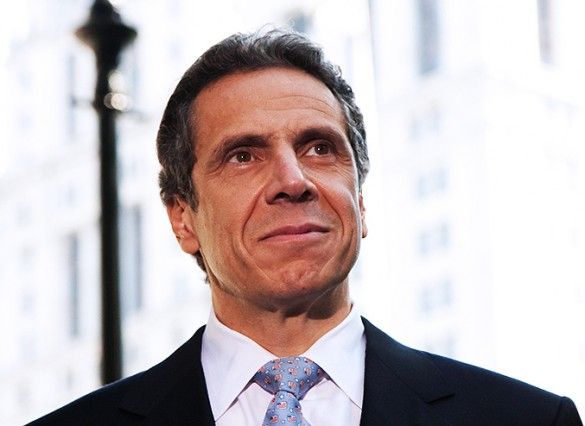Fat Lady Sang At Sunrise For Pension Reform Deal

BETWEEN THE LINES: As the sun rose over Albany last Thursday, the state’s lawmakers ended an all-night session negotiating a legislation package that introduces the dawning of pension reform. It will reduce benefits for new public employees, averts layoffs of state workers, but, more importantly, is projected to save the state billions of dollars over the next few decades.
Despite unrelenting opposition from organized labor, New York is now one of 44 states that, due to rising costs, have recently limited public employees’ retirement benefits.
For years, fiscal experts warned that escalating federal, state and city pensions would increasingly consume a large chunk of government budgets as an aging civil servant population retired. Benefits steadily grew after each contract negotiation, while the pot was often sweetened — sometimes recklessly — to guarantee political support from influential unions, votes from tens of thousands of union workers or under the duress of a strike to keep public services from slowing or shutting down.
However, the costly concessions of the past have slowly crippled municipal budgets, and reforms were needed to slow the predicament. Regrettably, the new reforms worked out by the legislature weakened Governor Andrew Cuomo’s more stringent plan, but they are, nonetheless, a step in the right direction.
Angered over the pension reform agreement, on Monday, New York’s Civil Service Employees Union (CSEU) announced that it felt betrayed by the bargain. It suspended campaign donations and endorsements of all political candidates until it could “reevaluate its relationships” with state lawmakers to determine the best interest for its 300,000 members. The New York Public Interest Research Group said the union contributed $130,000 to state candidates in 2011.
CSEU President Danny Donohue said that lawmakers put “their own political self interest” ahead of the retirement security of future state workers. While lawmakers generally follow their party’s agenda, union leaders are just as self-serving and only interested in what most benefits its members. The public be damned, more often than not, applies equally to union leaders as it does to politicians.
When the nation’s economy was hit by a series of setbacks four years ago, public pension funds, which are heavily invested in financial markets, suffered a severe blow. Despite the fiscal consequences, pension obligations had to be honored — a deal is a deal — and the resulting crunch led to belt-tightening for other elements of the budget pie.
After all, the economic downturn forced large and small businesses to launch cutbacks to remain afloat, not the least of which were workers’ benefits and pensions, so it seemed obvious and fair that generous government pensions eventually got sliced and diced.
Actually, according to estimates, government employees contribute just over 10 percent to their pensions, which means the rest of us, many of whom do not have substantial retirement options, contribute almost 90 percent. Those who supported Cuomo’s reform plan maintained that, if taxpayers continued to contribute to pensions at the current rate and the economy remained sluggish, the state would have had to resort to other, more drastic measures to meet the demand. The negotiated reforms are projected to save New York more than $80 billion over the next generation.
It should be noted that the state constitution forbids cutting benefits for current workers, so the restructuring only affects future state employees, whose retirement will still be secure albeit slightly reduced from today’s rates. Under the reform bill the retirement age changes from 62 to 63. It barely lowers the percentage of salary added on for each year of service, from two percent to 1.75 percent, but back to two percent in the 21st year. Yet, unions still argued that reforms would be devastating.
For a long time, what has been a bone of contention of pension costs were overtime wages factored into a pension calculation. Reformers suggested it be banned completely because the system has been abused. In their final year before retirement some workers accrue excess overtime to spike their final pension total.
And let’s not forget that retirees, who remain in the state or choose to live out their golden years in at least a dozen other states, don’t pay taxes on pensions, so while they continue to reap benefits, they no longer contribute to the state’s treasury.
Politics, at times, is a lot like life and brings to mind these Rolling Stones’ lyrics:
You can’t always get what you want, and if you try, sometimes you find you get what you need.
Governor Cuomo didn’t get the pension reform he wanted, but the overhaul that was achieved will chip away at the costly compromises of the past, which were slowly crippling the state budget.
Politics is never about my way or the highway. It’s customarily give-and-take negotiation. Cuomo didn’t get the perfect deal; he got the best deal possible. Moreover, when the Fat Lady sang, despite the unwelcome concessions, pension reform was a money-saving compromise that was long overdue and very necessary for an enduring turbulent economy.
Neil S. Friedman is a veteran reporter and photographer, and spent 15 years as an editor for a Brooklyn weekly newspaper. He also did public relations work for Showtime, The Rolling Stones and Michael Jackson. Friedman contributes a weekly column called “Between the Lines” on life, culture and politics in Sheepshead Bay.



